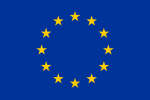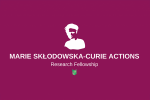Recruiting beneficiary: Barts Cancer Institute, Queen Mary University London, United Kingdom
Internal supervisors: Dr. Benjamin Werner, Prof. Trevor Graham
Brief project description: We will study how different mechanisms of resistance (e.g. genetic mutations, phenotypic/epigenetic changes, combination of both) in cancer cells impact patient treatment prospects and how we adjust treatment to maximise its efficacy under these different mechanisms. This will be done via varying assumptions of existing game-theoretical models but including resistance as an evolving trait. We will connect theoretical predictions with measurable quantities such as genetic composition of tumour cells in publically available cancer data, in order to reveal and quantify the impact of genetic and non-genetic mechanisms on resistance evolution.
Updates: Since the beginning of his PhD, Alexander has studied genetic patterns that arise over the course of standard treatment protocols and adaptive therapy. His research provides insights into the risk of multidrug resistance. He also contributed to advancing theoretical development of Stackelberg evolutionary game theory.
Selected contributions:
Stein, A., Salvioli, M., Garjani, H., Dubbeldam, J., Viossat, Y., Brown, J.S., & Staňková, K. (2023). Stackelberg Evolutionary Game Theory: how to manage evolving systems. Royal Society Publishing – Philosophical Transactions B.
Stein, A., Kizhuttil, R., Bak, M. and Noble, R. Selective sweep probabilities in spatially expanding populations (2023). Biorxiv.
Stein, A. and Werner, B. On the properties of genetic intra-tumour heterogeneity before and after treatment. In preparation.



